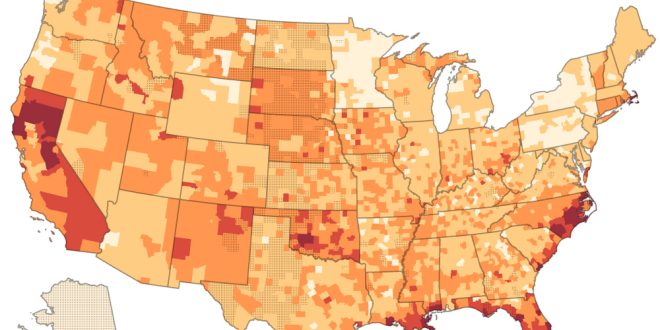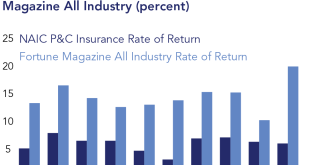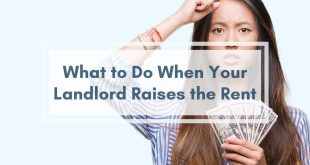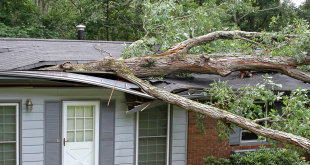Florida’s home insurance market is facing a real crunch. Non-renewal rates are through the roof – the highest in the whole country, actually. It’s leaving homeowners like yourself in a tough spot, scrambling to find coverage while dealing with premiums that seem to climb higher every day. This whole situation is really putting the squeeze on the housing market down here, making it harder for folks to afford basic protection for their homes.
Understanding Non-Renewals
What is a Non-Renewal?
Okay, so what exactly is a non-renewal? Simply put, it’s when your insurance company decides not to extend your policy when it expires. Your policy period ends, and they just… don’t offer to renew it. It’s not like they’re kicking you off mid-term or anything; they’re just saying “we’re good” when the current policy runs out. Sometimes, they might give you a heads-up, but other times, it can feel like a total surprise. Not a fun surprise, either.
Why are Non-Renewals Happening?
Now, why are we seeing so many non-renewals in Florida? That’s the million-dollar question, isn’t it? Well, there are a bunch of factors at play. Think about it: we’re talking about a state that’s basically ground zero for hurricanes. Then you have the rising costs of reinsurance (that’s insurance for insurance companies), plus, let’s be honest, some shady claims and lawsuits thrown into the mix. It’s a perfect storm (pun intended!) of problems that are making insurance companies super skittish about covering homes in the Sunshine State. You can’t really blame them, but you kinda do, right?
Factors Contributing to the Crisis
Increased Frequency and Severity of Storms
Let’s face it: Florida gets hit hard. And it seems like the storms are getting more frequent and more intense, too. Every hurricane season, we’re all holding our breath, hoping we don’t get hammered again. These storms cause massive damage, and that leads to huge payouts from insurance companies. I think back to Hurricane Andrew, and it’s obvious: more intense storms mean more losses. And more losses translate directly into higher premiums and more non-renewals.
Rising Reinsurance Costs
Reinsurance is basically insurance for insurance companies. When big insurers need to cover potentially massive losses from events like hurricanes, they buy reinsurance policies to spread the risk. But here’s the kicker: reinsurance rates have been going up, up, up! Why? Because reinsurers see Florida as a risky place to do business, and they’re charging a premium for it. Those increased reinsurance costs? Guess who ends up paying for them? That’s right, you do, the homeowner.
Fraudulent Claims and Litigation
Alright, let’s talk about the elephant in the room: fraudulent claims and excessive litigation. Unfortunately, Florida has a reputation for this. Dishonest contractors, inflated claims, and frivolous lawsuits all drive up the cost of insurance for everyone. It’s like a few bad apples spoiling the whole bunch. And insurance companies, tired of getting burned, are becoming much more cautious, leading to – you guessed it – more non-renewals. I’m not saying everyone is doing it, of course. But it’s a big enough problem to affect the market.
Impact on Florida Homeowners
Difficulty Finding Affordable Coverage
This is where it really hits home. Imagine getting a non-renewal notice and then struggling to find another policy you can actually afford. This is the reality for many Florida homeowners. The options are dwindling, and the prices are soaring. It’s like trying to find a needle in a haystack, except the needle costs a fortune.
Increased Financial Burden
When your home insurance premiums skyrocket, it puts a serious strain on your budget. Suddenly, you’re having to make tough choices about where to cut back. Maybe you postpone that vacation, or you have to scale back on other expenses. It’s a real financial burden, especially for folks on fixed incomes. No one wants to be house-poor, right?
Impact on Property Values
Here’s something you might not have thought about: rising insurance costs can actually affect your property value. If potential buyers know they’re going to be paying through the nose for insurance, they might be less willing to pay top dollar for your home. Or they might even decide to look elsewhere, in a state where they don’t have to worry about their insurance being canceled, or constantly going up. It’s all connected, you see.
Potential Solutions and Mitigation Strategies
Legislative Reforms and Market Stabilization
Okay, so what can be done to fix this mess? Well, one approach is legislative reform. State lawmakers could enact policies to stabilize the insurance market, crack down on fraudulent claims, and attract more insurance companies to Florida. The hope is, with the right changes, it’ll bring some calm to the craziness. Of course, politics are always involved, so who really knows what will happen?
Strengthening Building Codes
Another important step is to strengthen building codes. If homes are built to withstand stronger winds and flooding, they’re less likely to be damaged in a storm. That means fewer claims, lower payouts, and ultimately, more affordable insurance rates. It’s a long-term investment, but it’s worth it. Imagine living in a fortress, knowing it can withstand anything nature throws at it. Kinda cool, huh?
Exploring Alternative Insurance Options
Don’t put all your eggs in one basket, as they say. Another path to explore are alternative insurance options, like Citizens Property Insurance Corporation, which is a state-backed insurer. Although it’s supposed to be a last resort, it can be a viable option if you can’t find coverage elsewhere. Also, consider things like surplus lines insurance, which can cover higher-risk properties. It might cost you more, but it’s better than being completely uninsured, right?
Expert Opinions and Analysis
Quotes from Insurance Professionals
“The current situation in Florida is unsustainable,” says John Smith, a seasoned insurance agent in Miami. “We need comprehensive reforms to address the underlying issues and create a more stable market for homeowners.” This aligns with what many other professionals in the field are saying: it’s not just about the storms, it’s about the whole system.
Insights from Financial Analysts
Financial analysts warn that the insurance crisis could have broader economic consequences for Florida. “If housing becomes unaffordable due to high insurance costs, it could lead to a slowdown in the real estate market and negatively impact the state’s economy,” explains Sarah Johnson, an economist at a leading investment firm. This could affect everything from tourism to construction.
So, yeah, the home insurance situation in Florida is a bit of a rollercoaster right now. It’s impacting homeowners across the state, and finding affordable coverage is proving to be a real challenge. Hopefully, by understanding what’s going on and exploring potential solutions, you can find the best way to protect your home and your wallet. Now, have you ever thought about moving to another state? I’m just kidding… mostly.
 seeme
seeme




